Students work on a creative thesis under the direction of a faculty member for at least a year during their time in the program. They defend, present, and read from their theses the semester they graduate.
Return to program indexFall 2021

David Gibson
Fall 2021



David Gibson
Fall 2021
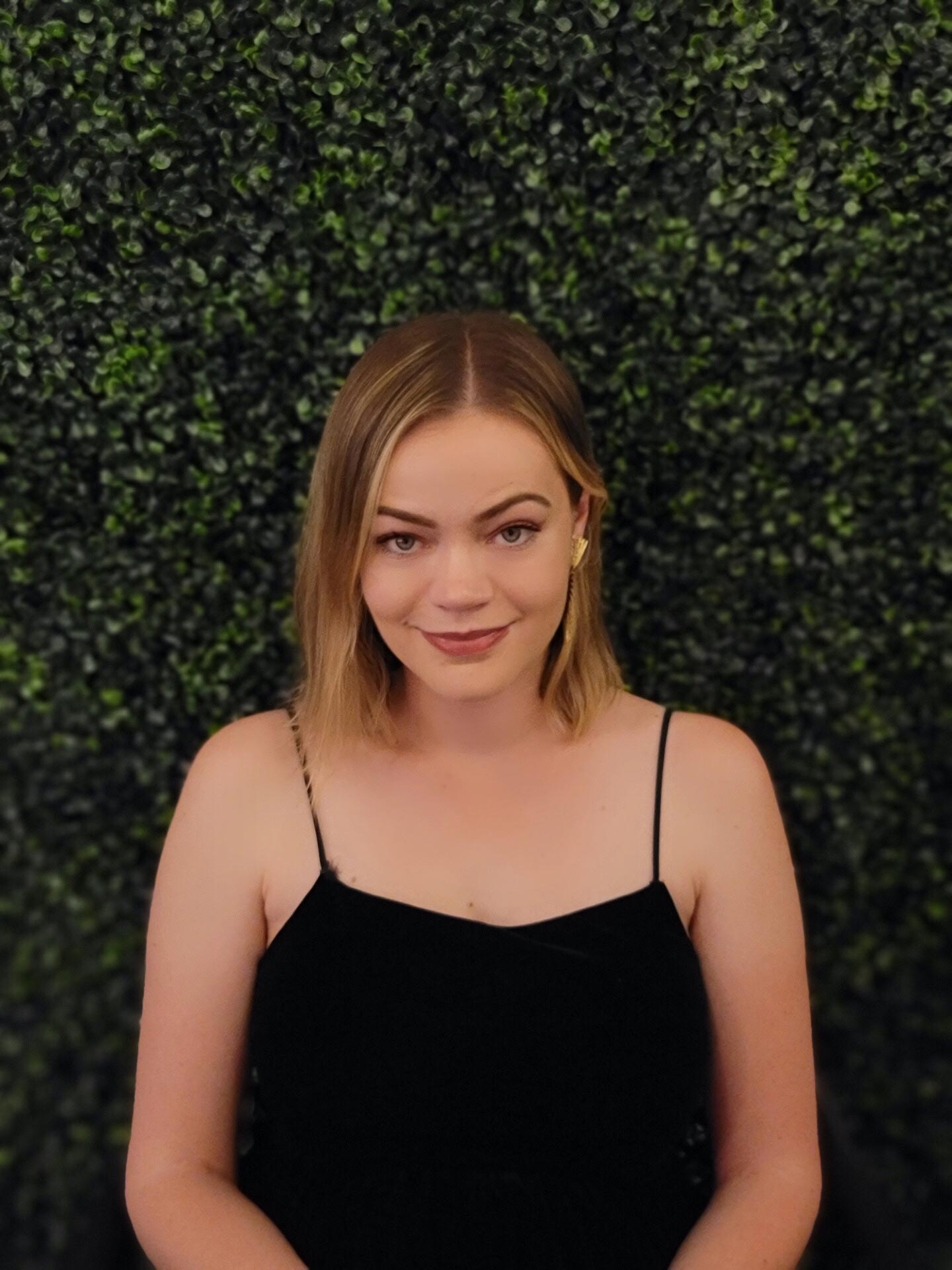


Marelize Roets
Fall 2021



Marelize Roets
Fall 2021
Spring 2021



Nicole Balsamo
Spring 2021
Abstract
Beautiful, Terrible Things is an adult urban fantasy novel that explores the toxic dynamics of dysfunctional families, why we love the people who hurt us, and how far we will go for the people we love. For over a century, Portland has been ruled by three supernatural families: the McCulloughs, a nest of ruthless vampires, the Sinclairs, a pack of cutthroat werewolves, and the Takeuchis, a family of dangerous kitsune. They have enjoyed a shaky peace, one that Shiki Takeuchi and Dominic Wright have preserved with their supernatural speakeasy, a safe zone with only one rule: No Fighting. But when Mina Takeuchi’s body turns up dead in her mother’s driveway with signs that the wolves are to blame, tensions ignite. As shots are fired and bodies drop on all sides, their relationship is put to the test and their families demand they pick a side. Dom and Shiki must protect each other as they navigate feuding families, town politics, and a city on the verge of war. But in a town where violence is the strongest currency, everyone must pay.
Excerpt
Because as much as Dom promised that this wasn’t Shiki’s fault, it was. His family’s grief, his mother’s impulsivity, his own fear, had caused this. Shiki might as well have locked him in that room himself. And no matter how they swore they could get through this, could protect each other, the fact remained that Dom’s pack had antagonized his family twice. Round and around they went, a carousel of chaos, clinging to each other as their world blurred into violence. He heard Rin in his head, his reminder that things like them did not get happy endings. And as Shiki held Dom on their bathroom floor, his throat clogged with the fear he might be right.



Nicole Balsamo
Spring 2021
Abstract
Beautiful, Terrible Things is an adult urban fantasy novel that explores the toxic dynamics of dysfunctional families, why we love the people who hurt us, and how far we will go for the people we love. For over a century, Portland has been ruled by three supernatural families: the McCulloughs, a nest of ruthless vampires, the Sinclairs, a pack of cutthroat werewolves, and the Takeuchis, a family of dangerous kitsune. They have enjoyed a shaky peace, one that Shiki Takeuchi and Dominic Wright have preserved with their supernatural speakeasy, a safe zone with only one rule: No Fighting. But when Mina Takeuchi’s body turns up dead in her mother’s driveway with signs that the wolves are to blame, tensions ignite. As shots are fired and bodies drop on all sides, their relationship is put to the test and their families demand they pick a side. Dom and Shiki must protect each other as they navigate feuding families, town politics, and a city on the verge of war. But in a town where violence is the strongest currency, everyone must pay.
Excerpt
Because as much as Dom promised that this wasn’t Shiki’s fault, it was. His family’s grief, his mother’s impulsivity, his own fear, had caused this. Shiki might as well have locked him in that room himself. And no matter how they swore they could get through this, could protect each other, the fact remained that Dom’s pack had antagonized his family twice. Round and around they went, a carousel of chaos, clinging to each other as their world blurred into violence. He heard Rin in his head, his reminder that things like them did not get happy endings. And as Shiki held Dom on their bathroom floor, his throat clogged with the fear he might be right.



Madison Brake
Spring 2021
Abstract
Ruinous Wings is a young adult fantasy novel that examines the drive to seek power and how the power of others can shape our lives. In a world where the gods grant magic to favored mortals through divine birds, those who lack the proper training and affluence are often left at the mercy of Volitants, those who have been blessed with magic. Aina is a pickpocket whose only trusted friend was killed in a Volitant’s battle. Vib is a thief and a liar obsessed with the pursuit of fame, even as she runs from her past. Kay is an apprentice historian in a Volitant temple, trapped in a life he does not want for the crimes of his family. When Aina steals a divine bird and is given destructive magic from a mysterious god, the three must work together to stop a brewing war and decide what power is worth to them.
Excerpt
The Volitants had appeared at the end of the line, riding pale horses. They were not in uniform, instead dressing however they pleased, their spines a little straighter, their faces more serene, and on their gauntleted fists they carried their great Caelum birds with their glossy black and gold feathers and fierce golden eyes. There were nine of them present, all gods-blessed and gleaming, but her gaze rested on the man at the head dressed in a long red coat who rode a magnificent warhorse. His face was less serene than it was impassive. His eyes, a flinty blue, roamed the crowds with the lazy scrutiny of a cat confident in its place. At his side, he carried a great sword, and his bird hunched low on his fist, less like the sharper birds of the other Volitants and more like a vulture.
This man could only be Orthos, favorite of the war god’s servants, champion of the kingdom of Valland. The ruthless hunter, the winged wolf, the bane of nations. The most powerful man in a kingdom without kings.



Madison Brake
Spring 2021
Abstract
Ruinous Wings is a young adult fantasy novel that examines the drive to seek power and how the power of others can shape our lives. In a world where the gods grant magic to favored mortals through divine birds, those who lack the proper training and affluence are often left at the mercy of Volitants, those who have been blessed with magic. Aina is a pickpocket whose only trusted friend was killed in a Volitant’s battle. Vib is a thief and a liar obsessed with the pursuit of fame, even as she runs from her past. Kay is an apprentice historian in a Volitant temple, trapped in a life he does not want for the crimes of his family. When Aina steals a divine bird and is given destructive magic from a mysterious god, the three must work together to stop a brewing war and decide what power is worth to them.
Excerpt
The Volitants had appeared at the end of the line, riding pale horses. They were not in uniform, instead dressing however they pleased, their spines a little straighter, their faces more serene, and on their gauntleted fists they carried their great Caelum birds with their glossy black and gold feathers and fierce golden eyes. There were nine of them present, all gods-blessed and gleaming, but her gaze rested on the man at the head dressed in a long red coat who rode a magnificent warhorse. His face was less serene than it was impassive. His eyes, a flinty blue, roamed the crowds with the lazy scrutiny of a cat confident in its place. At his side, he carried a great sword, and his bird hunched low on his fist, less like the sharper birds of the other Volitants and more like a vulture.
This man could only be Orthos, favorite of the war god’s servants, champion of the kingdom of Valland. The ruthless hunter, the winged wolf, the bane of nations. The most powerful man in a kingdom without kings.
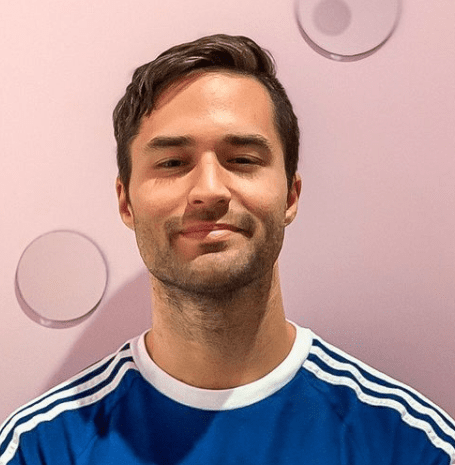


Joshua Deshaies
Spring 2021
Abstract
Moneyboys is a novel that explores queer identity in the early 2000s, in the final few years of the height of the American boy band craze. The story’s protagonist must reconcile her own identity with what she views as two increasingly opposed goals: to make space for other queer people in turn-of-the-century Tinseltown and to continue getting hers. Her pursuit of these goals, her life outside of the fame machine, and the glossy, holographic, six-packed residents of the internet cause her to forge different versions of realness – an ability to define and embody an idea until it’s the truth – for herself, for the band of publicly-closeted and mostly-queer boys she manages, and for the American boy band consumer. Because this is still the turn of the millennium, she’s accompanied by hybrid intermissions of morning commute radio, basic cable news tabloids, and IM conversations – none of which makes it any easier for her to discover or remember what is truly real. Though this is, of course, what she must attempt to do.
Excerpt
Boy Band 104: it’s all supposed to look effortless, even though everyone involved knows that it’s not. It’s supposed to be like deodorant, there and pleasant, inoffensive – but deeply, unbendingly effective. And, as Jenna knows, nerds need deodorant. Boy bands are what this audience longs for – they’re emblematic of effort transforming into coolness, one of the few essences so pure it’s safely immeasurable. Where other execs had seen their audiences with small glows, maybe a pleasantly-bloated deltoid just south of each ear, Jenna had known to market to those who’d listen quietly, dance only in rooms devoid of other people. They’d twirl through parents’ basements, dodge other servers during late-night shifts, and sing along in a whisper, all part of an unnoticed network. Like Tom in his underwear but heavier, with more cellulite. Individually, nerds – people like Jenna, she’ll even admit it, OK? – aren’t the type of audience that the groomers and bodily arrangers of Hollywood want to think about. But together, it is them – the shy, the horny, the pale – that have blipped into a network that’s propelled the Moneyboys, by the start of ‘03, to chart spots so consistently above the ground that they come with a concierge. They consume, they pay, they spurt back data. They trail their hands across their bodies in bed as they think about the boys, the beautiful boys, to the point where their imagined selves become so removed from what’s real that soon, they’re just a vestige of their image of their favorite bandmate. Jenna has seen the chatrooms – the screencaps of 180p videos of the boys mid-lunge at concerts, circles and lines superimposed across their crotches in an effort to triangulate the exact shapes of their genitals. She knows she’s turned the Moneyboys into an entity nerds believe are worth more work than their jobs, their lives beyond the internet, their lives at all. And what’s even better is the nerds are quiet, appreciative – couldn’t cause an issue if they tried.
Or, at least, that’s what Jenna had thought until this morning, when the bespectacled spreadsheet jockeys from the CS program at USC left her with an accordion-folded printout that may weigh more than she does. It’s a report, delivered as promised, from The Thompson Lab. It says that the boys are perceived by audiences as more feminine, that they’ll be part of the origin point for a crisis of masculinity in the late naughties, that they’ll turn the nerd market into people who care about themselves before the boys they’ve idolized, and twist common advertising knowhow into a gnarled, useless display.



Joshua Deshaies
Spring 2021
Abstract
Moneyboys is a novel that explores queer identity in the early 2000s, in the final few years of the height of the American boy band craze. The story’s protagonist must reconcile her own identity with what she views as two increasingly opposed goals: to make space for other queer people in turn-of-the-century Tinseltown and to continue getting hers. Her pursuit of these goals, her life outside of the fame machine, and the glossy, holographic, six-packed residents of the internet cause her to forge different versions of realness – an ability to define and embody an idea until it’s the truth – for herself, for the band of publicly-closeted and mostly-queer boys she manages, and for the American boy band consumer. Because this is still the turn of the millennium, she’s accompanied by hybrid intermissions of morning commute radio, basic cable news tabloids, and IM conversations – none of which makes it any easier for her to discover or remember what is truly real. Though this is, of course, what she must attempt to do.
Excerpt
Boy Band 104: it’s all supposed to look effortless, even though everyone involved knows that it’s not. It’s supposed to be like deodorant, there and pleasant, inoffensive – but deeply, unbendingly effective. And, as Jenna knows, nerds need deodorant. Boy bands are what this audience longs for – they’re emblematic of effort transforming into coolness, one of the few essences so pure it’s safely immeasurable. Where other execs had seen their audiences with small glows, maybe a pleasantly-bloated deltoid just south of each ear, Jenna had known to market to those who’d listen quietly, dance only in rooms devoid of other people. They’d twirl through parents’ basements, dodge other servers during late-night shifts, and sing along in a whisper, all part of an unnoticed network. Like Tom in his underwear but heavier, with more cellulite. Individually, nerds – people like Jenna, she’ll even admit it, OK? – aren’t the type of audience that the groomers and bodily arrangers of Hollywood want to think about. But together, it is them – the shy, the horny, the pale – that have blipped into a network that’s propelled the Moneyboys, by the start of ‘03, to chart spots so consistently above the ground that they come with a concierge. They consume, they pay, they spurt back data. They trail their hands across their bodies in bed as they think about the boys, the beautiful boys, to the point where their imagined selves become so removed from what’s real that soon, they’re just a vestige of their image of their favorite bandmate. Jenna has seen the chatrooms – the screencaps of 180p videos of the boys mid-lunge at concerts, circles and lines superimposed across their crotches in an effort to triangulate the exact shapes of their genitals. She knows she’s turned the Moneyboys into an entity nerds believe are worth more work than their jobs, their lives beyond the internet, their lives at all. And what’s even better is the nerds are quiet, appreciative – couldn’t cause an issue if they tried.
Or, at least, that’s what Jenna had thought until this morning, when the bespectacled spreadsheet jockeys from the CS program at USC left her with an accordion-folded printout that may weigh more than she does. It’s a report, delivered as promised, from The Thompson Lab. It says that the boys are perceived by audiences as more feminine, that they’ll be part of the origin point for a crisis of masculinity in the late naughties, that they’ll turn the nerd market into people who care about themselves before the boys they’ve idolized, and twist common advertising knowhow into a gnarled, useless display.
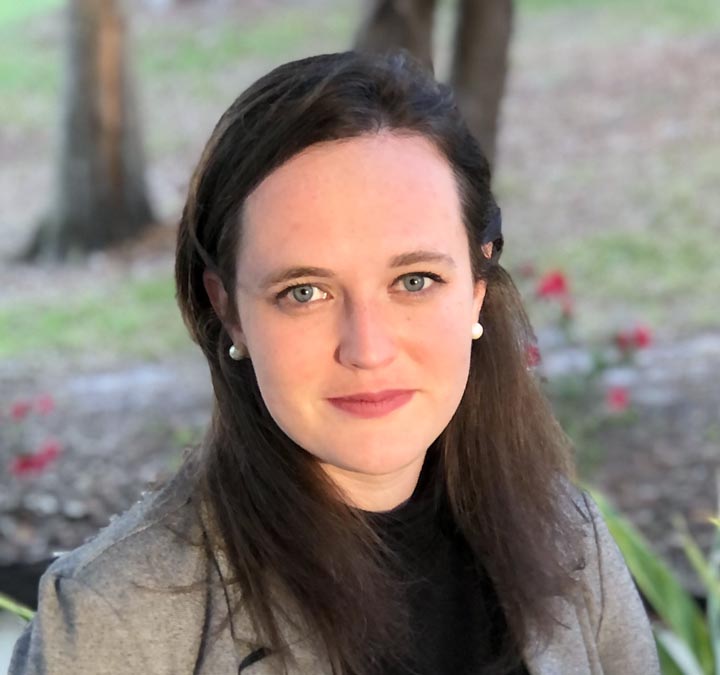


Rebecca Fox
Spring 2021
Abstract
What if the sun disappeared but the world didn’t end? A boy with wings fell out of the sky? A piano prodigy vanished but the disappearance didn’t stick? Sunseekers is a collection of short stories that explores the intersections of memory, identity, and narrative. How do the stories we hear, tell, and internalize shape the people we are becoming and the worlds we are making? Stories stay with us. They shape us, and they change us. The longer they sit within us, the more they begin to interpret our pasts, define our presents, and set trajectories for our futures. And as the boundaries of memory are blurred, so are the patterns of time. In Sunseekers, the traditions of magical realism, fairy tale, and literary realism intersect as characters and their narratives are exposed to the wild and startling fabric of the world as it is.
Excerpt
When the Shade appeared, first a lengthening shadow and then sinking across the sky from either pole like a theatre curtain closing, we braced ourselves for what would come next – a meteor strike, maybe, a burst of flame and then nothing, or even a long freeze like a fist tightening. Instead, the Shade swallowed the world into a thick darkness that never wavered, and that was it.
My father noticed, if not first then sooner than most, the signs of what was coming. At the kitchen table, he puzzled over papers printed with tiny points of data. I overheard him repeat the word “irregularities” to my mother. Dad was an astronomer. A professor at the small college where I attended and my brother, Caleb, had gone before medical school and the youngest, Thea, would have gone if she hadn’t run off to Europe with friends as soon as she turned eighteen. From the observatory Dad operated—a small brick building with a balcony and a dome built on a hill at the edge of campus—he spied the overtures of the shadows, the way the daylight was shrinking, imperceptible to the naked eye, although it was springtime, supposedly reaching for summer. But it didn’t matter that Dad had felt a premonition or that he hadn’t been able to find anyone to pay attention to his findings or even that he wouldn’t have known what warning to give if someone had listened, because the Shade caught up with the world and there wasn’t anything anyone could do to stop it or turn it back or even explain how the world could get stuck halfway through its ending.



Rebecca Fox
Spring 2021
Abstract
What if the sun disappeared but the world didn’t end? A boy with wings fell out of the sky? A piano prodigy vanished but the disappearance didn’t stick? Sunseekers is a collection of short stories that explores the intersections of memory, identity, and narrative. How do the stories we hear, tell, and internalize shape the people we are becoming and the worlds we are making? Stories stay with us. They shape us, and they change us. The longer they sit within us, the more they begin to interpret our pasts, define our presents, and set trajectories for our futures. And as the boundaries of memory are blurred, so are the patterns of time. In Sunseekers, the traditions of magical realism, fairy tale, and literary realism intersect as characters and their narratives are exposed to the wild and startling fabric of the world as it is.
Excerpt
When the Shade appeared, first a lengthening shadow and then sinking across the sky from either pole like a theatre curtain closing, we braced ourselves for what would come next – a meteor strike, maybe, a burst of flame and then nothing, or even a long freeze like a fist tightening. Instead, the Shade swallowed the world into a thick darkness that never wavered, and that was it.
My father noticed, if not first then sooner than most, the signs of what was coming. At the kitchen table, he puzzled over papers printed with tiny points of data. I overheard him repeat the word “irregularities” to my mother. Dad was an astronomer. A professor at the small college where I attended and my brother, Caleb, had gone before medical school and the youngest, Thea, would have gone if she hadn’t run off to Europe with friends as soon as she turned eighteen. From the observatory Dad operated—a small brick building with a balcony and a dome built on a hill at the edge of campus—he spied the overtures of the shadows, the way the daylight was shrinking, imperceptible to the naked eye, although it was springtime, supposedly reaching for summer. But it didn’t matter that Dad had felt a premonition or that he hadn’t been able to find anyone to pay attention to his findings or even that he wouldn’t have known what warning to give if someone had listened, because the Shade caught up with the world and there wasn’t anything anyone could do to stop it or turn it back or even explain how the world could get stuck halfway through its ending.
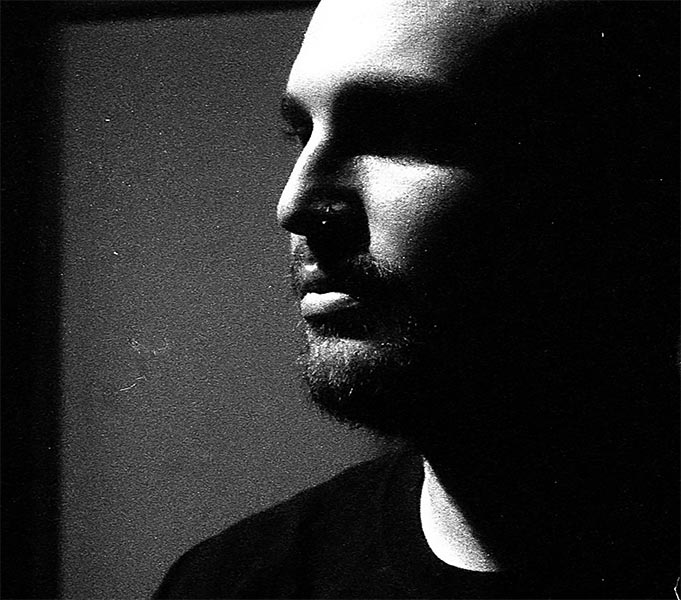


William Walker
Spring 2021
Abstract
I’ll See You in the Morning explores the relationship between the choices we make and the consequences we bring on ourselves and others. The characters of this collection all struggle with decisions that have unforeseen results, and decisions that cannot be taken back. Their stories probe the obscure fault-line that exists at the collision of free will and deterministic fate, between nature and morality. Characters will face temptation – a submarine filled with cocaine, an undead lover in the crawlspace, a journey across an exposed ocean floor – and they will have to weigh their desires against the needs and safety of others. The choices these characters make may be selfish or harmful, but each will try to do the best they can with what they have.
Excerpt
Everett stood over his sleeping son’s hospital bed, looking at him. Eggshell skin, baby blonde hair. The boy sucked absently at a pacifier. He would never outgrow it. Burton was not sure how, but he knew. The doctors had told them there could still be a miracle, it was not likely but it could still happen, and Kate still held onto that, but Burton knew that without an abundance of horror there could be no miracles. His son would not leave this hospital. And then what? Without Jack, he and Kate were strangers, no longer moored to each other by responsibility and resentment. And without Kate, the carefully laid tracks of his life collapsed before him. He could do anything. It was frightening and, somewhere in there, exciting too.
But he was not being honest, and he knew it. There could be a miracle. The boy could be spared. The track rebuilt. Life restored. And to him that was more frightening than anything else. A known end. A long march over a tall cliff. He tried not to, but he hoped there would be no miracle. He hated himself for it, but he had fantasized of his son’s death since the diagnosis. All his talk of horror and grace had been what his sponsor had called bullshit.



William Walker
Spring 2021
Abstract
I’ll See You in the Morning explores the relationship between the choices we make and the consequences we bring on ourselves and others. The characters of this collection all struggle with decisions that have unforeseen results, and decisions that cannot be taken back. Their stories probe the obscure fault-line that exists at the collision of free will and deterministic fate, between nature and morality. Characters will face temptation – a submarine filled with cocaine, an undead lover in the crawlspace, a journey across an exposed ocean floor – and they will have to weigh their desires against the needs and safety of others. The choices these characters make may be selfish or harmful, but each will try to do the best they can with what they have.
Excerpt
Everett stood over his sleeping son’s hospital bed, looking at him. Eggshell skin, baby blonde hair. The boy sucked absently at a pacifier. He would never outgrow it. Burton was not sure how, but he knew. The doctors had told them there could still be a miracle, it was not likely but it could still happen, and Kate still held onto that, but Burton knew that without an abundance of horror there could be no miracles. His son would not leave this hospital. And then what? Without Jack, he and Kate were strangers, no longer moored to each other by responsibility and resentment. And without Kate, the carefully laid tracks of his life collapsed before him. He could do anything. It was frightening and, somewhere in there, exciting too.
But he was not being honest, and he knew it. There could be a miracle. The boy could be spared. The track rebuilt. Life restored. And to him that was more frightening than anything else. A known end. A long march over a tall cliff. He tried not to, but he hoped there would be no miracle. He hated himself for it, but he had fantasized of his son’s death since the diagnosis. All his talk of horror and grace had been what his sponsor had called bullshit.
Fall 2020



Heather Orlando Jerabek
Fall 2020
Abstract
The Girls is a novel that examines the consequences of religious extremism: how can an oppressed group survive in a society that disavows equality, science, and ultimately, bodily autonomy?
A different kind of campus novel, The Girls follows four young women as they navigate the bizarre world of Scofield Boarding School for Girls—where students may only walk on preordained pink sidewalks, must endure public shaming for real or imagined sins, and are surrounded by massive walls and miles of desert on all sides. The girls struggle with concerns that all too often plague women because of contemporary societal norms including: insecurity regarding appearances, shame regarding sexuality, mental illness, gender identity expectations and complicated family dynamics, all in a setting seeped in generational patriarchy and intolerance.
Some are pushed, and others go willingly, but the young women in The Girls all fight for the thing they so desperately require—a voice in an environment that desperately seeks to silence them.
Excerpt
PROLOGUE
Our fathers taught us of everlasting life. They poured oil, anointed our foreheads; told us we would never die. Told us: dear hearts, the boys are the chosen ones, but you are the promised land. We nodded, backs straightening. We’d heard the parables. We’d heard of The Father from our fathers; with voices, deep and certain, they spoke of His power over death. O grave, where is thy victory? our fathers asked. O death, where is thy sting?
We were silent as we have been taught. Truth did not require voices; it required only obedience.
We often discussed how our fathers reacted, the moment the news of the death reached them. How they might have wondered about the details. Tried to explain our failure. It’s a simple matter of faith, they would have said; it’s a simple matter of strength. We were anemic, after all. Girls, who gave unto the earth: our blood, our toil, our pain. We only gave, we did not take. It was foolish to attempt it, they would have said. Foolish to expect a miracle amongst such frailty.
We still remember the force of her screams—how her face folded into sharp angles and retreated behind shadows of pain.
Our voices: confident then beseeching.
Her voice: piercing then faint.
We, hands hovering in the space above her head.
We, confident in the power of our immortality.
We, breathing into these slain that they might live.



Heather Orlando Jerabek
Fall 2020
Abstract
The Girls is a novel that examines the consequences of religious extremism: how can an oppressed group survive in a society that disavows equality, science, and ultimately, bodily autonomy?
A different kind of campus novel, The Girls follows four young women as they navigate the bizarre world of Scofield Boarding School for Girls—where students may only walk on preordained pink sidewalks, must endure public shaming for real or imagined sins, and are surrounded by massive walls and miles of desert on all sides. The girls struggle with concerns that all too often plague women because of contemporary societal norms including: insecurity regarding appearances, shame regarding sexuality, mental illness, gender identity expectations and complicated family dynamics, all in a setting seeped in generational patriarchy and intolerance.
Some are pushed, and others go willingly, but the young women in The Girls all fight for the thing they so desperately require—a voice in an environment that desperately seeks to silence them.
Excerpt
PROLOGUE
Our fathers taught us of everlasting life. They poured oil, anointed our foreheads; told us we would never die. Told us: dear hearts, the boys are the chosen ones, but you are the promised land. We nodded, backs straightening. We’d heard the parables. We’d heard of The Father from our fathers; with voices, deep and certain, they spoke of His power over death. O grave, where is thy victory? our fathers asked. O death, where is thy sting?
We were silent as we have been taught. Truth did not require voices; it required only obedience.
We often discussed how our fathers reacted, the moment the news of the death reached them. How they might have wondered about the details. Tried to explain our failure. It’s a simple matter of faith, they would have said; it’s a simple matter of strength. We were anemic, after all. Girls, who gave unto the earth: our blood, our toil, our pain. We only gave, we did not take. It was foolish to attempt it, they would have said. Foolish to expect a miracle amongst such frailty.
We still remember the force of her screams—how her face folded into sharp angles and retreated behind shadows of pain.
Our voices: confident then beseeching.
Her voice: piercing then faint.
We, hands hovering in the space above her head.
We, confident in the power of our immortality.
We, breathing into these slain that they might live.
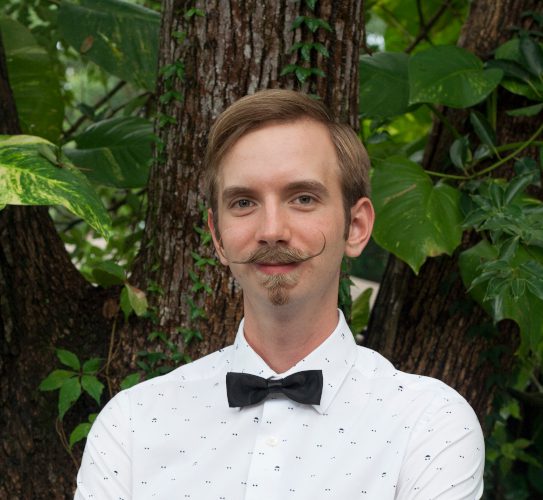


Kyle Kubik
Fall 2020
Abstract
While perhaps more honest conversations about identity are occurring today than ever before, the violence infused into identity by millennia of conflict has barely been reduced, if affected at all. Indeed, identifying with a particular political party, religion, sexuality, etc. is often considered a declaration of war on those of differing beliefs and/or existence. The abuse and toxic perceptions created by such conflicts have only fed our culture’s escapist tendencies. Now, individuals often role play characters’ adventures and/or binge watch the lives of others more than they live their own, and the face—both figurative and literal—that individuals show on social media is partly, if not wholly, a persona. Seeking to escape reality, we have become a people skilled at substituting for every part of it, including ourselves.
The Morpheum Principle is a dystopian novel that aims to explore such issues by examining the nature of perception and how escapism/self-substitution can lead to self-erasure. Set in the city-state of Morpheum—a society that has banned the public expression of personal identities and mandated that its citizenry wear masks at all times—the narrative follows the lives of the twin sisters Dalia Lorenson and Anastasia Peddlebrook. Born to an abusive mother and a negligent father, Dalia seeks to dissociate herself from their parents’ and culture’s view of her blindness while Anastasia strives to break free from being their mother’s personal slave and another mindless citizen. Both take refuge in the personas allowed during Morphuem’s masquerades, and both must decide how much of themselves they are willing to sacrifice to escape the labels and lives that hold them.
Excerpt
Dalia wondered why black was the color of grief. Both glossy and matte black fabrics were used for the most elegant suits and dresses. Black striped the lionfish mask that the government had assigned her for soirees and the dress Anastasia made to match it, and their mother had called the outfit gaudy. Black was the color of night and, therefore, rest and relief from the day’s work. Anastasia had told her that black was the color of nothingness, that it was the color Dalia saw. There had certainly been times when her lack of sight angered, maybe even grieved her, but she perceived the color before her not as nothingness but more as the fabric of her reality. It was neither gaudy nor elegant, neither happy nor sad. If she had a word for it, it was stable. When she wore black, she matched the color of her world. There was a beautiful unity to that idea. Anastasia would like the balance of it.



Kyle Kubik
Fall 2020
Abstract
While perhaps more honest conversations about identity are occurring today than ever before, the violence infused into identity by millennia of conflict has barely been reduced, if affected at all. Indeed, identifying with a particular political party, religion, sexuality, etc. is often considered a declaration of war on those of differing beliefs and/or existence. The abuse and toxic perceptions created by such conflicts have only fed our culture’s escapist tendencies. Now, individuals often role play characters’ adventures and/or binge watch the lives of others more than they live their own, and the face—both figurative and literal—that individuals show on social media is partly, if not wholly, a persona. Seeking to escape reality, we have become a people skilled at substituting for every part of it, including ourselves.
The Morpheum Principle is a dystopian novel that aims to explore such issues by examining the nature of perception and how escapism/self-substitution can lead to self-erasure. Set in the city-state of Morpheum—a society that has banned the public expression of personal identities and mandated that its citizenry wear masks at all times—the narrative follows the lives of the twin sisters Dalia Lorenson and Anastasia Peddlebrook. Born to an abusive mother and a negligent father, Dalia seeks to dissociate herself from their parents’ and culture’s view of her blindness while Anastasia strives to break free from being their mother’s personal slave and another mindless citizen. Both take refuge in the personas allowed during Morphuem’s masquerades, and both must decide how much of themselves they are willing to sacrifice to escape the labels and lives that hold them.
Excerpt
Dalia wondered why black was the color of grief. Both glossy and matte black fabrics were used for the most elegant suits and dresses. Black striped the lionfish mask that the government had assigned her for soirees and the dress Anastasia made to match it, and their mother had called the outfit gaudy. Black was the color of night and, therefore, rest and relief from the day’s work. Anastasia had told her that black was the color of nothingness, that it was the color Dalia saw. There had certainly been times when her lack of sight angered, maybe even grieved her, but she perceived the color before her not as nothingness but more as the fabric of her reality. It was neither gaudy nor elegant, neither happy nor sad. If she had a word for it, it was stable. When she wore black, she matched the color of her world. There was a beautiful unity to that idea. Anastasia would like the balance of it.
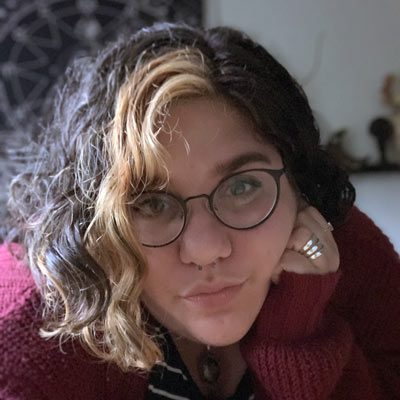


Tara Mayer
Fall 2020
Abstract
This Might Get Heavy is a collection of essays which explores intersecting themes of body image, mental illness, and sexual identity. Through these personal essays, Mayer explores and interrogates the societal norms and tendencies that have formed the shape into which she has forced herself both mentally and physically.
In essays such as “The Point System” and “Refraction,” Mayer uses memoir to depict the origins of her struggles with body image and disordered eating. “Tara’s Body Quiz and Answer Guide” and “How to Determine Your Sexuality: A Guide to Finding Your Letter in the Acronym” inhabit “hermit crab” forms to break through emotional barriers and question the need for conformity. Other essays, like “Green Tea and Giant Donuts” and “(Potentially Unwanted) Letters from Your Former Self,” act as thematic bridges that explore the ways body image and sexuality can influence one another, ultimately helping Mayer to unearth previously undiscovered pieces of her identity.
This Might Get Heavy uses several voices and forms to address and break away from the perceived expectations that have ruled the narrator’s life. It is both a reflection on the ways in which a body is built and a rebellion against the binding that holds these parts together.
Excerpt
Nuclear Option
Our bodies are weapons. Dangerous. The fat we contain is a bomb waiting to go off. The larger the bomb, the bigger the explosion. But if our wires cross, which way will the bomb detonate?
Forty-three-year-old, thirty-three-year-old, twenty-year old, thirteen-year-old woman/girl/body found on a running track, outside a weigh-in, in her kitchen, on the bathroom floor. Cause of death: starvation, disillusion, cardiac arrest, drowned in her own bile.
Our bodies are your weapons. You take my hips from me, sharpen bones to points that carve out the words “too wide”. You take my stomach, stretch it whip-thin with a crack that sounds like the word “fat.” You take my arms, carve down flab until they are hilt to your sword. I can’t remember these parts. When did they stop being part of me? When did you learn to wield them? And when there is nothing left of me, will that be enough for you?
Fat women everywhere, dead, like the radiation has spread and claimed them all for not being thin enough. Only the thinnest survive, and the curves will be forgotten about and no one will ever be fat again and America will be sane again because everyone’s body is the same.
Our bodies are our weapons. Comfort in this skin—with its folds, pockmarks, and sags—is an act of political violence. Celebrate every molecule: fat, muscle, blood. Be worshipped. Exist. Resist. Survive. Take back the weapons that they have stolen.



Tara Mayer
Fall 2020
Abstract
This Might Get Heavy is a collection of essays which explores intersecting themes of body image, mental illness, and sexual identity. Through these personal essays, Mayer explores and interrogates the societal norms and tendencies that have formed the shape into which she has forced herself both mentally and physically.
In essays such as “The Point System” and “Refraction,” Mayer uses memoir to depict the origins of her struggles with body image and disordered eating. “Tara’s Body Quiz and Answer Guide” and “How to Determine Your Sexuality: A Guide to Finding Your Letter in the Acronym” inhabit “hermit crab” forms to break through emotional barriers and question the need for conformity. Other essays, like “Green Tea and Giant Donuts” and “(Potentially Unwanted) Letters from Your Former Self,” act as thematic bridges that explore the ways body image and sexuality can influence one another, ultimately helping Mayer to unearth previously undiscovered pieces of her identity.
This Might Get Heavy uses several voices and forms to address and break away from the perceived expectations that have ruled the narrator’s life. It is both a reflection on the ways in which a body is built and a rebellion against the binding that holds these parts together.
Excerpt
Nuclear Option
Our bodies are weapons. Dangerous. The fat we contain is a bomb waiting to go off. The larger the bomb, the bigger the explosion. But if our wires cross, which way will the bomb detonate?
Forty-three-year-old, thirty-three-year-old, twenty-year old, thirteen-year-old woman/girl/body found on a running track, outside a weigh-in, in her kitchen, on the bathroom floor. Cause of death: starvation, disillusion, cardiac arrest, drowned in her own bile.
Our bodies are your weapons. You take my hips from me, sharpen bones to points that carve out the words “too wide”. You take my stomach, stretch it whip-thin with a crack that sounds like the word “fat.” You take my arms, carve down flab until they are hilt to your sword. I can’t remember these parts. When did they stop being part of me? When did you learn to wield them? And when there is nothing left of me, will that be enough for you?
Fat women everywhere, dead, like the radiation has spread and claimed them all for not being thin enough. Only the thinnest survive, and the curves will be forgotten about and no one will ever be fat again and America will be sane again because everyone’s body is the same.
Our bodies are our weapons. Comfort in this skin—with its folds, pockmarks, and sags—is an act of political violence. Celebrate every molecule: fat, muscle, blood. Be worshipped. Exist. Resist. Survive. Take back the weapons that they have stolen.
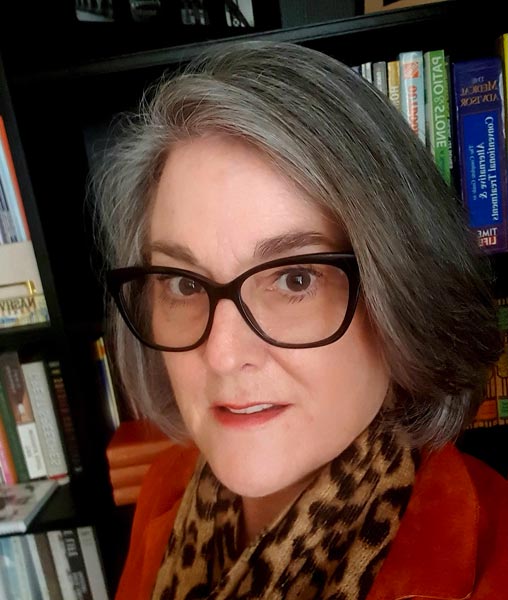


Constance Owens
Fall 2020
Abstract
Memoirist Linda Joy Myers said, “It seems to me the best way we can manage complexities about ‘mother’ is not to remain in judgement of our mothers, no matter how hard that is.” Taking Inventory is a biography my mother, whose life spanned decades filled with hope, heartbreak, loneliness, and adversity. Weaving together micro-essay and prose poetry set at the merger of her adulthood and my childhood, this mixed genre collection examines the many ways her life influenced mine.
The triptych structure of the book moves backwards in time, exploring the relationship between my mother and the world she navigated, beginning with the final stages of her life, moving through a turbulent mid-life, and ending with the young woman affected by a world war, an alcoholic father, and a devoutly religious mother. Through one of the central pieces of the collection, “Late Night Ap·o·lo·gi·a,” regret and justification are intertwined to explore an imagined confessional, while another key piece, “A Daughter’s Nondisclosure Agreement,” allows my teenage persona to put my mother’s indiscretions on full display. “When I Kissed Her Today, She Smelled Like Coconut” and “I Was Someone’s Daughter Once” highlight the redemptive qualities that created the foundation of the mother-daughter alliance that is evident in “Ice Cream.” “Bumper-to-Bumper Bravado” and “A One-Woman Dance Party in the Middle of Nowhere” relate the struggles of navigating the final stages of her life. Woven throughout the collection is an inventory of the contents of my mother’s apartment after she moved to hospice care, complete with anecdotes from her life.
At some point, you realize your mother is not who you thought she was, but someone separate from what you made her out to be. My mother didn’t have the solutions, nor the answers to her problems—or her daughter’s. In many ways, Taking Inventory stands in judgement regarding the why, how, and what if in her role both as a mother and as a woman. It’s full of questions about motherhood, womanhood, and daughterhood—and ultimately about forgiveness.
Excerpt
Late Night Ap·o·lo·gi·a
These hours before dawn—when sleep eludes me, a time when I let go of everything associated with the day, my mind loosened for contemplation so the darkest recessions can filter through the cracks— I examine my daily thoughts to see what they really mean.
First movement, pensive, dreamy mood, twilight, the blue hour,
The burden of not being what I might have been haunted me and drove me to engage in selfish behavior. Frankly, I was tired of the burden of provision, both emotional and economical, but felt compelled to continue until my obligations came to an end. I suppose I must say in my defense that my reasons were not based wholly on requirement, and that I did indeed have some maternal instincts based on love for my child and the desire to nurture. But those qualities were waning and waxing, leaving me exhausted, and ready to resign from the post, pushing my fledgling from the nest too early, making her take on more responsibility than a teenager should.



Constance Owens
Fall 2020
Abstract
Memoirist Linda Joy Myers said, “It seems to me the best way we can manage complexities about ‘mother’ is not to remain in judgement of our mothers, no matter how hard that is.” Taking Inventory is a biography my mother, whose life spanned decades filled with hope, heartbreak, loneliness, and adversity. Weaving together micro-essay and prose poetry set at the merger of her adulthood and my childhood, this mixed genre collection examines the many ways her life influenced mine.
The triptych structure of the book moves backwards in time, exploring the relationship between my mother and the world she navigated, beginning with the final stages of her life, moving through a turbulent mid-life, and ending with the young woman affected by a world war, an alcoholic father, and a devoutly religious mother. Through one of the central pieces of the collection, “Late Night Ap·o·lo·gi·a,” regret and justification are intertwined to explore an imagined confessional, while another key piece, “A Daughter’s Nondisclosure Agreement,” allows my teenage persona to put my mother’s indiscretions on full display. “When I Kissed Her Today, She Smelled Like Coconut” and “I Was Someone’s Daughter Once” highlight the redemptive qualities that created the foundation of the mother-daughter alliance that is evident in “Ice Cream.” “Bumper-to-Bumper Bravado” and “A One-Woman Dance Party in the Middle of Nowhere” relate the struggles of navigating the final stages of her life. Woven throughout the collection is an inventory of the contents of my mother’s apartment after she moved to hospice care, complete with anecdotes from her life.
At some point, you realize your mother is not who you thought she was, but someone separate from what you made her out to be. My mother didn’t have the solutions, nor the answers to her problems—or her daughter’s. In many ways, Taking Inventory stands in judgement regarding the why, how, and what if in her role both as a mother and as a woman. It’s full of questions about motherhood, womanhood, and daughterhood—and ultimately about forgiveness.
Excerpt
Late Night Ap·o·lo·gi·a
These hours before dawn—when sleep eludes me, a time when I let go of everything associated with the day, my mind loosened for contemplation so the darkest recessions can filter through the cracks— I examine my daily thoughts to see what they really mean.
First movement, pensive, dreamy mood, twilight, the blue hour,
The burden of not being what I might have been haunted me and drove me to engage in selfish behavior. Frankly, I was tired of the burden of provision, both emotional and economical, but felt compelled to continue until my obligations came to an end. I suppose I must say in my defense that my reasons were not based wholly on requirement, and that I did indeed have some maternal instincts based on love for my child and the desire to nurture. But those qualities were waning and waxing, leaving me exhausted, and ready to resign from the post, pushing my fledgling from the nest too early, making her take on more responsibility than a teenager should.
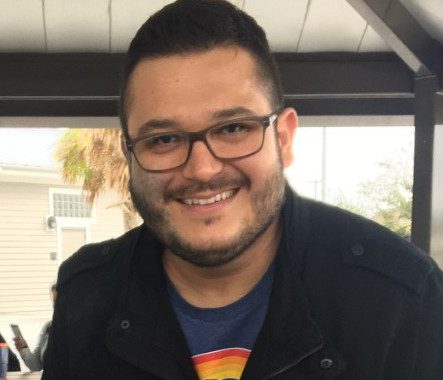


Will Rincón
Fall 2020
Abstract
Transcendence is a novel that examines masculinity and self-acceptance in the modern era: How do we move on from wrongs done by others and our own mistakes?
A coming-of-age novel, Transcendence follows Cassiel, a young man in his mid-twenties, as he searches for his absent father and finds himself in a monastery where monks have strange abilities. He decides to learn meditation and find the source of his unhappiness through trials that test his discipline and faults. With the promise of enlightenment and learning what happened to his long-lost father, Cassiel completes each trial and comes closer to finding the answers to life within himself. His struggles reflect current concerns with technology, of feeling insignificant, addiction, depression, lust, jealousy, pride, and doubt, all in a setting that leaves behind our modern society’s obsession with consumption in exchange for a life focused on self-actualization.
Cassiel hopes to overcome each trial with the resolve he finds in a life he never imagined was possible and find his truth in self-acceptance.



Will Rincón
Fall 2020
Abstract
Transcendence is a novel that examines masculinity and self-acceptance in the modern era: How do we move on from wrongs done by others and our own mistakes?
A coming-of-age novel, Transcendence follows Cassiel, a young man in his mid-twenties, as he searches for his absent father and finds himself in a monastery where monks have strange abilities. He decides to learn meditation and find the source of his unhappiness through trials that test his discipline and faults. With the promise of enlightenment and learning what happened to his long-lost father, Cassiel completes each trial and comes closer to finding the answers to life within himself. His struggles reflect current concerns with technology, of feeling insignificant, addiction, depression, lust, jealousy, pride, and doubt, all in a setting that leaves behind our modern society’s obsession with consumption in exchange for a life focused on self-actualization.
Cassiel hopes to overcome each trial with the resolve he finds in a life he never imagined was possible and find his truth in self-acceptance.
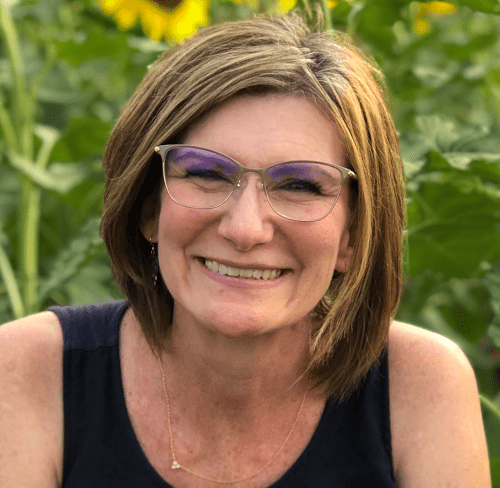


Robin Schulte
Fall 2020
Abstract
The concept of home is often synonymous with security. Dutiful Daughter is a memoir which traces the experience and impact of growing up with an alcoholic mother and an abusive father. Mothering plays a large part in these pieces: my complicated love for my alcoholic mother, the ways in which our roles sometimes reversed, my search for an alternative mother figure growing up, and my attempts to mother myself. I also explore the shifting concept of home—from the home my parents created to the many homes I found after they divorced. As an adult, I searched and found my brother Christopher, whom I had not seen in thirty years, and discovered he was homeless, schizophrenic and an alcoholic. This memoir details my search and the complex struggle to get him into a stable situation. Throughout, I attempt to address the dissonance between the dream of a home and the reality.
Excerpt
Dad snapped a Polaroid picture of our modest, West Texas ranch style house from the front sidewalk the day we moved to Odessa. The gears hummed inside, and the instant camera spit out the picture like a chemically treated tongue.
“If you kids want to see this, you better get over here.”
He took a long drag on a cigarette and stood squinting in a swirl of smoke, holding the corner of the picture between his thumb and index finger and waved it, waiting for it to process. Dad wore a heavy turquoise ring on a quick, thick calloused hand. I had learned early to keep quiet and stay out of the way. But this was a rare moment of unexpected kindness. Andrea, Christopher, Jonathan, and I dodged and elbowed into position. At first the frame contained only a milky white square but then, slowly, a ghostly geometric outline began to form, followed by the yellow and brown smears which became the defined shape of our new home.



Robin Schulte
Fall 2020
Abstract
The concept of home is often synonymous with security. Dutiful Daughter is a memoir which traces the experience and impact of growing up with an alcoholic mother and an abusive father. Mothering plays a large part in these pieces: my complicated love for my alcoholic mother, the ways in which our roles sometimes reversed, my search for an alternative mother figure growing up, and my attempts to mother myself. I also explore the shifting concept of home—from the home my parents created to the many homes I found after they divorced. As an adult, I searched and found my brother Christopher, whom I had not seen in thirty years, and discovered he was homeless, schizophrenic and an alcoholic. This memoir details my search and the complex struggle to get him into a stable situation. Throughout, I attempt to address the dissonance between the dream of a home and the reality.
Excerpt
Dad snapped a Polaroid picture of our modest, West Texas ranch style house from the front sidewalk the day we moved to Odessa. The gears hummed inside, and the instant camera spit out the picture like a chemically treated tongue.
“If you kids want to see this, you better get over here.”
He took a long drag on a cigarette and stood squinting in a swirl of smoke, holding the corner of the picture between his thumb and index finger and waved it, waiting for it to process. Dad wore a heavy turquoise ring on a quick, thick calloused hand. I had learned early to keep quiet and stay out of the way. But this was a rare moment of unexpected kindness. Andrea, Christopher, Jonathan, and I dodged and elbowed into position. At first the frame contained only a milky white square but then, slowly, a ghostly geometric outline began to form, followed by the yellow and brown smears which became the defined shape of our new home.
Spring 2020
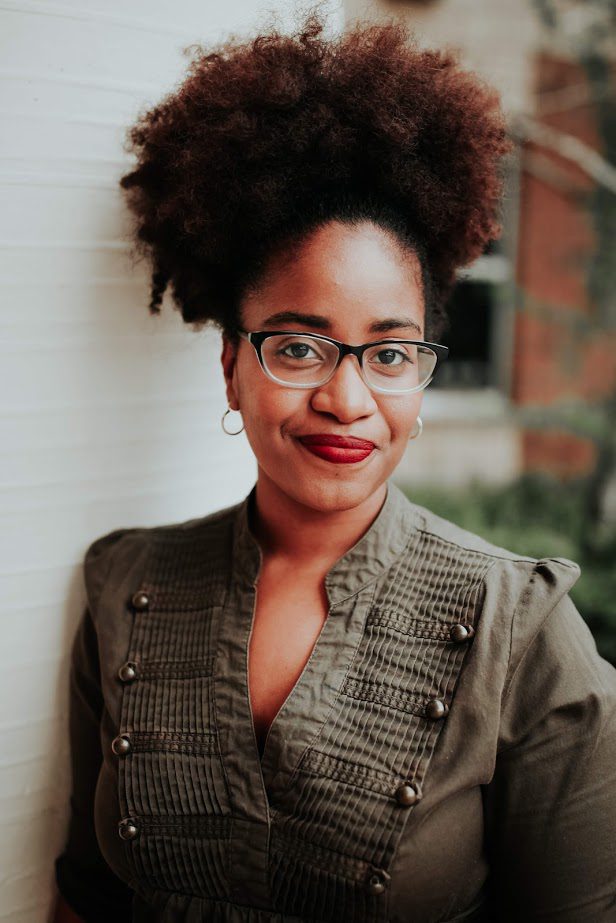


Audi Ashley Barnes
Spring 2020
Abstract
Audi Ashley Barnes is a poet and essayist whose work interrogates identity—in particular its intersection with race. “Poplar Trees” discusses the near-genetic memory of fear and persecution that Black people experience on even the most innocuous, seemingly beautiful days. What once may have been considered a positive, even peaceful scene, takes on an insidious view when considered in conjunction with the environment’s historical context.
Excerpt
“Pastoral scene of the gallant south”
—Strange Fruit, as sung by Nina Simone
The soil is clotted with magnolias.
Far, a vendor hawks a bag of hairy
peaches while last week’s souring navel
oranges turn black in the lost gutter.
Breathe in that sickly sweetness. Taste it now.
Trip over those twisted roots that prolapse.
Tell your sons that nice old men and good ol’
boys are not. Tell your daughters: avoid both. Stay:
watch branches swing in a sudden gust and watch the
leaves rip free, hang on air itself: an estranged fruit.
(Are you imagining the straining rope?
Are you remembering his red, bare feet?
Taste his mother’s honeyed tears in your tea.)



Audi Ashley Barnes
Spring 2020
Abstract
Audi Ashley Barnes is a poet and essayist whose work interrogates identity—in particular its intersection with race. “Poplar Trees” discusses the near-genetic memory of fear and persecution that Black people experience on even the most innocuous, seemingly beautiful days. What once may have been considered a positive, even peaceful scene, takes on an insidious view when considered in conjunction with the environment’s historical context.
Excerpt
“Pastoral scene of the gallant south”
—Strange Fruit, as sung by Nina Simone
The soil is clotted with magnolias.
Far, a vendor hawks a bag of hairy
peaches while last week’s souring navel
oranges turn black in the lost gutter.
Breathe in that sickly sweetness. Taste it now.
Trip over those twisted roots that prolapse.
Tell your sons that nice old men and good ol’
boys are not. Tell your daughters: avoid both. Stay:
watch branches swing in a sudden gust and watch the
leaves rip free, hang on air itself: an estranged fruit.
(Are you imagining the straining rope?
Are you remembering his red, bare feet?
Taste his mother’s honeyed tears in your tea.)



Adam Byko
Spring 2020
Abstract
Rites of Renewal is a short story collection that explores the question of what happens when a world, a person, or a family is broken in a way that may be past fixing. Throughout this collection, characters face wounds beyond their ability to heal, past sins beyond their ability to redeem. Their environment, their future, their families—everything is falling apart. The doppelganger farm has lost its crops, the family automaton is rusting, and the reverse volcano is threatening to come back together and take all of us with it. The stories in Rites of Renewal are dispatches from characters past their breaking points, facing realities spiraling outside of their control. These characters do not have solutions. They do not have answers. They do, however, have a will to try. The protagonists in Rites of Renewal find their solace in their ability to create something new. What they create will not be the same as what was lost, nor will it be a mended version of what had been broken. It will just be the best that they can grow in barren soil with broken parts. It will also, somehow, if only for a moment, be enough.
Excerpt
It used to be my husband would only disintegrate rarely and in quick flashes. I never even saw it happen until after three years of dating. We were tangled on his futon at the time. Brian’s body pressed down from above, the metal skeleton of the futon up from below. The frame rattled, and I felt trapped in the best way. Then, a smell like melting plastic. Blinding light. The weight that had pinned me down — gone. Breath surged into my lungs, my heart leapt in a pattern of panic, and just like that, the light condensed, and Brian was back on top of me. Even though it was all over in a matter of seconds, I could not get over the shock. “There’s this thing with my family,” Brian explained, after giving up on his efforts to coax me back into position. “Where sometimes we burst apart.” In the coming months I read all the literature. I came to an understanding of what I was about to marry. I knew that it would only get worse, that it was just a matter of time. As the dissolutions became more frequent, as the glow of his body spread farther, stayed suspended a beat longer, I understood that these were bad signs. I would watch Brian come back together slow, like fireflies clustering into a human body, and try to summon my solemnity. I told myself that this was the beginning of an end. I told myself that I was witnessing a tragedy. But, at heart, every time my husband fell apart I could not help but see it as dazzling.



Adam Byko
Spring 2020
Abstract
Rites of Renewal is a short story collection that explores the question of what happens when a world, a person, or a family is broken in a way that may be past fixing. Throughout this collection, characters face wounds beyond their ability to heal, past sins beyond their ability to redeem. Their environment, their future, their families—everything is falling apart. The doppelganger farm has lost its crops, the family automaton is rusting, and the reverse volcano is threatening to come back together and take all of us with it. The stories in Rites of Renewal are dispatches from characters past their breaking points, facing realities spiraling outside of their control. These characters do not have solutions. They do not have answers. They do, however, have a will to try. The protagonists in Rites of Renewal find their solace in their ability to create something new. What they create will not be the same as what was lost, nor will it be a mended version of what had been broken. It will just be the best that they can grow in barren soil with broken parts. It will also, somehow, if only for a moment, be enough.
Excerpt
It used to be my husband would only disintegrate rarely and in quick flashes. I never even saw it happen until after three years of dating. We were tangled on his futon at the time. Brian’s body pressed down from above, the metal skeleton of the futon up from below. The frame rattled, and I felt trapped in the best way. Then, a smell like melting plastic. Blinding light. The weight that had pinned me down — gone. Breath surged into my lungs, my heart leapt in a pattern of panic, and just like that, the light condensed, and Brian was back on top of me. Even though it was all over in a matter of seconds, I could not get over the shock. “There’s this thing with my family,” Brian explained, after giving up on his efforts to coax me back into position. “Where sometimes we burst apart.” In the coming months I read all the literature. I came to an understanding of what I was about to marry. I knew that it would only get worse, that it was just a matter of time. As the dissolutions became more frequent, as the glow of his body spread farther, stayed suspended a beat longer, I understood that these were bad signs. I would watch Brian come back together slow, like fireflies clustering into a human body, and try to summon my solemnity. I told myself that this was the beginning of an end. I told myself that I was witnessing a tragedy. But, at heart, every time my husband fell apart I could not help but see it as dazzling.



Alicia Ezekiel-Pipkin
Spring 2020
Abstract
Run Like a Girl is a collection of essays that examines the manifestations of fear through girlhood and into womanhood. The initial fear of losing her mother prompts in Pipkin a chain of fears: androphobia, horror delusions, body dysmorphia, and mental instability. In the essay “Dreaming in Dog Years,” Pipkin is introduced to “good girls” and “bad girls,” and what such identities mean for her and her mother’s endings according to horror movies. While some girls don’t survive, others are able to run. Pipkin and her mother’s shared obsession—running—is explored from various angles. In “The Sunflower Project” and “Mother Moon & Me,” Pipkin runs in response to fears of an abusive biological father. Essays such as “Run Like a Girl” and “Where There Should Be Blood” acknowledge the pitfalls of endurance running. Pipkin examines societal pressures around weight, social media imagery, and motherhood, and discusses how these pressures affect young girls taught to run. At the heart of the collection is a testament of love. The collection ends with “A Conversation with My Mother’s Journal,” where Pipkin explores mental health and reconciles her antipathy towards her mother through journal entries. The essay provides readers with her mother’s own words, fulfilling her mother’s unrealized aspiration of writing memoir.
Excerpt
“For girls, running is expected. We’re told what we do is run scared; that flight takes precedent over fight. We run like girls. We’re not to be those girls—we’re to be good girls, horror movies’ final girls. Rather than running with the wolves, we run away. We’re to be soft, but hide our softness in turtlenecks and shapeless clothes. We’re to reject attention, and invert into ourselves, into our bones, which build haunted houses of domesticated loneliness. We’re to sustain goosebumps, keeping ourselves alert to dangers those girls wouldn’t see. Couldn’t see. Of our friends, we’re to be quiet leaders because a voice would make us bitches; we’re to outthink the others—out run others—only to turn and watch them, those girls, perish. We were to survive the horror.”



Alicia Ezekiel-Pipkin
Spring 2020
Abstract
Run Like a Girl is a collection of essays that examines the manifestations of fear through girlhood and into womanhood. The initial fear of losing her mother prompts in Pipkin a chain of fears: androphobia, horror delusions, body dysmorphia, and mental instability. In the essay “Dreaming in Dog Years,” Pipkin is introduced to “good girls” and “bad girls,” and what such identities mean for her and her mother’s endings according to horror movies. While some girls don’t survive, others are able to run. Pipkin and her mother’s shared obsession—running—is explored from various angles. In “The Sunflower Project” and “Mother Moon & Me,” Pipkin runs in response to fears of an abusive biological father. Essays such as “Run Like a Girl” and “Where There Should Be Blood” acknowledge the pitfalls of endurance running. Pipkin examines societal pressures around weight, social media imagery, and motherhood, and discusses how these pressures affect young girls taught to run. At the heart of the collection is a testament of love. The collection ends with “A Conversation with My Mother’s Journal,” where Pipkin explores mental health and reconciles her antipathy towards her mother through journal entries. The essay provides readers with her mother’s own words, fulfilling her mother’s unrealized aspiration of writing memoir.
Excerpt
“For girls, running is expected. We’re told what we do is run scared; that flight takes precedent over fight. We run like girls. We’re not to be those girls—we’re to be good girls, horror movies’ final girls. Rather than running with the wolves, we run away. We’re to be soft, but hide our softness in turtlenecks and shapeless clothes. We’re to reject attention, and invert into ourselves, into our bones, which build haunted houses of domesticated loneliness. We’re to sustain goosebumps, keeping ourselves alert to dangers those girls wouldn’t see. Couldn’t see. Of our friends, we’re to be quiet leaders because a voice would make us bitches; we’re to outthink the others—out run others—only to turn and watch them, those girls, perish. We were to survive the horror.”



Malcolm E. Kelly
Spring 2020
Abstract
In Charcoal Boys & Dreams of Fire, the intersection of blackness, gayness, identity and religion are explored and picked apart. The collection revolves around a speaker obsessed with authenticity in the face of dog whistle speech, fetishization mistaken for lust, and a god of love whose presence fosters hate. It juxtaposes nonfiction essays with verse and surreal prose poetry to highlight expression and emotion, embracing rage, coddling pettiness, and shunning apologies for the sake of identity.
Excerpt
You are a god of whispers and echoes,
lower pantheon at best.
Hollow eyes squinting and hunched form,
tacking curses onto the praises you mop across the floor.
You inhale the spice and smoke of my burnt offering,
while pissing over the flame.
Shine marble pillars with the spit of your sucked teeth
while you worship at the altars of my feet. Polish me,
I’m top tier. You string hails and adoration on mint floss
picked from the teeth of better men—and try to stuff my ears.
You convulse in tongues, cry with supple words
you saw etched on someone else’s mind, all while
lifting praises to me like reused balloons.
I am not too good to be true
simply too good for you.
Touch all this skin framed by my limp wrist.
Push your tongue through my stone lips
Tell me you love me before I forget you
You’ll never see me again.
Eternally, Me—your god of Audacity, Fem, Faggotry and Flow.



Malcolm E. Kelly
Spring 2020
Abstract
In Charcoal Boys & Dreams of Fire, the intersection of blackness, gayness, identity and religion are explored and picked apart. The collection revolves around a speaker obsessed with authenticity in the face of dog whistle speech, fetishization mistaken for lust, and a god of love whose presence fosters hate. It juxtaposes nonfiction essays with verse and surreal prose poetry to highlight expression and emotion, embracing rage, coddling pettiness, and shunning apologies for the sake of identity.
Excerpt
You are a god of whispers and echoes,
lower pantheon at best.
Hollow eyes squinting and hunched form,
tacking curses onto the praises you mop across the floor.
You inhale the spice and smoke of my burnt offering,
while pissing over the flame.
Shine marble pillars with the spit of your sucked teeth
while you worship at the altars of my feet. Polish me,
I’m top tier. You string hails and adoration on mint floss
picked from the teeth of better men—and try to stuff my ears.
You convulse in tongues, cry with supple words
you saw etched on someone else’s mind, all while
lifting praises to me like reused balloons.
I am not too good to be true
simply too good for you.
Touch all this skin framed by my limp wrist.
Push your tongue through my stone lips
Tell me you love me before I forget you
You’ll never see me again.
Eternally, Me—your god of Audacity, Fem, Faggotry and Flow.